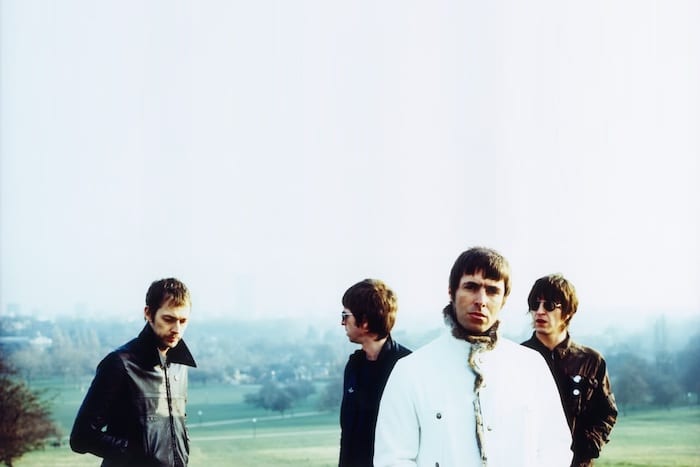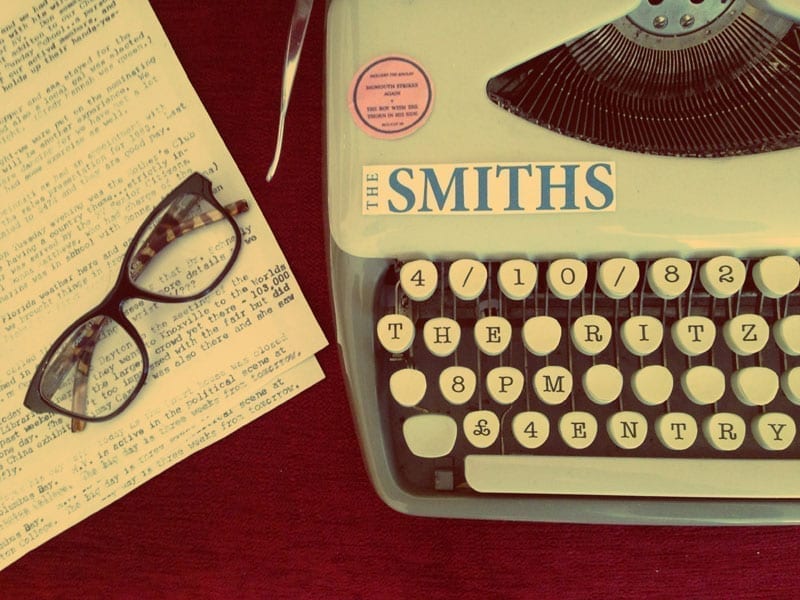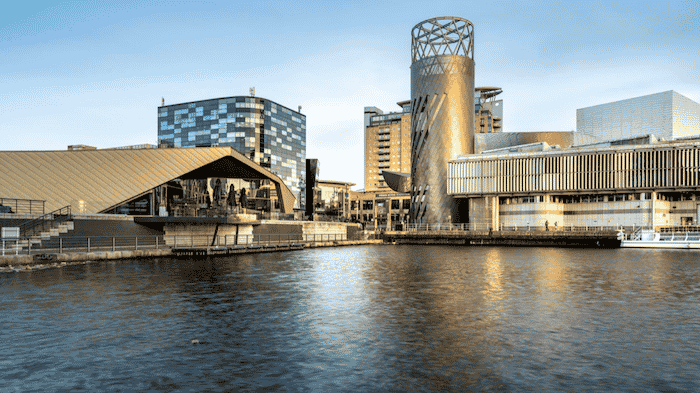The Smiths and Oasis: Irish blood, Mancunian hearts
- Written by Emily Oldfield
- Last updated 8 years ago
- Cinema, Community, Culture

If your family has lived in Manchester for more than a generation, chances are you’ve got some Irish blood in you.
Manchester’s links to Ireland go back to before the Industrial Revolution with the seasonal movement of agricultural labourers and a great influx of Irish immigrants to meet the growing demand for hand-loom weavers.
As the Industrial Revolution unfolded, Manchester became Britain’s industrial heart and its promise of work attracted thousands of poor Irish families. Manchester was one of the big three destination cities for Irish immigration to England together with Liverpool and London.
Irish labourers or ’navvies’ played a huge part in the construction of the railways, roads and canals. It is estimated that a third of the labour force working on the Manchester Ship Canal came from Ireland.
In the 1850s, it was estimated that over 13% of the population of Manchester had been born in Ireland – the second highest population density of Irish people in England after Liverpool.
There was even an area in Manchester nicknamed Little Ireland, which became one of the city’s most notorious slums, now commemorated by a red plaque on Great Marlborough Street, close to Oxford Road station.
Liverpool may be the most Irish city but according to president of Ireland Michael Higgins, “The Irish connection in Manchester is no less evident than in Liverpool. And where Liverpool was a gateway for so many Irish people, Manchester tended to be for many the end of the journey, a home.”
It’s hardly surprising then that so many Mancunians have Irish roots. It’s the same in music, too. All the members of two of Manchester’s biggest bands, The Smiths and Oasis, were of Irish parentage and influenced by their Irish heritage.
“The bedrock of both bands was their shared backgrounds,” says Paul Sheehan, the organiser of Irish Blood English Heart? a special event which will explore the role played by musicians of Irish descent in British rock music.
“Mike Joyce said that The Smiths had an absolute affinity because of their Irish connection, while Noel Gallagher described the Oasis debut album Definitely Maybe as ‘the sound of five second generation Irish Catholics coming out of a council estate’.
“Growing up in an Irish family in England at that time was to feel neither fully Irish nor English, which created a sense of being an outsider. It can be argued that in the case of Oasis, this found expression in their attitude and defiance, while the outsider perspective informed the songs of The Smiths and Morrissey.”
Irish Blood, English Heart, with its denunciation of the royal family and Oliver Cromwell, who is still reviled in Ireland because of the massacres he presided over, is probably the best known song which explores Morrissey’s dual identity.

“Johnny Marr has said that the melodies from those sad Irish tunes definitely went into The Smiths,” says Paul. “He cites Please, Please, Please, Let Me Get What I Want as an example of this. He had originally called it The Irish Waltz because of the sense of longing it invokes.”
There is also the legacy of a thriving scene of local second-generation Irish bands in Manchester such as Toss The Feathers, developing from large numbers of Irish immigrants coming to Manchester during the 1950s and 60s.
“When their children hit their teens and twenties there was an explosion of interest in such bands: their gigs would attract hundreds and were joyously raucous occasions. Hopefully the conditions for a similar burst of enthusiasm from the new generation are still there, as Manchester has a thriving Irish cultural scene which welcomes all Mancunians, regardless of the depth of their Irish heritage,” says Paul.
Irish Blood English Heart? will feature screenings of two films from the acclaimed Irish TV documentary series Guth, focussing on The Smiths and Oasis respectively. Dr Sean Campbell, author of Irish Blood, English Heart, will explore the role of Irish ethnicity in the lives and work of Irish-descent musicians. The films are partially narrated in the Irish language with subtitles.
Chorlton Irish Club, 17 High Ln, Manchester M21 9DJ on Sunday 12 February at 2pm. Entry £6. Advance tickets can be booked at www.wegottickets.com/mancirish
- This article was last updated 8 years ago.
- It was first published on 7 February 2017 and is subject to be updated from time to time. Please refresh or return to see the latest version.
Did we miss something? Let us know: press@ilovemanchester.com
Want to be the first to receive all the latest news stories, what’s on and events from the heart of Manchester? Sign up here.
Manchester is a successful city, but many people suffer. I Love Manchester helps raise awareness and funds to help improve the lives and prospects of people across Greater Manchester – and we can’t do it without your help. So please support us with what you can so we can continue to spread the love. Thank you in advance!
An email you’ll love. Subscribe to our newsletter to get the latest news stories delivered direct to your inbox.
Got a story worth sharing?
What’s the story? We are all ears when it comes to positive news and inspiring stories. You can send story ideas to press@ilovemanchester.com
While we can’t guarantee to publish everything, we will always consider any enquiry or idea that promotes:
- Independent new openings
- Human interest
- Not-for-profit organisations
- Community Interest Companies (CiCs) and projects
- Charities and charitable initiatives
- Affordability and offers saving people over 20%
For anything else, don’t hesitate to get in touch with us about advertorials (from £350+VAT) and advertising opportunities: advertise@ilovemanchester.com

Here’s how you can make your moves matter for dementia awareness

£14.5m cultural and creative hub to ‘mark a new chapter’ for Stockport Town Centre

Now you can own a piece of TV history and support a much loved NHS Charity

Best bars and pubs to watch the football and live sport in Manchester

Discotheque Royale vs Piccadilly 21s: which was your favourite 90s Manchester club?
















